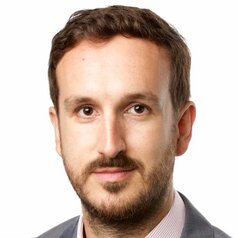
David Wells
Honorary Research Associate at the Cyber Threats Research Centre, Swansea University
David Wells is an independent global security consultant worked with national, regional and international governments on a range of emerging terrorism and counter-terrorism challenges, including terrorist exploitation of technology, far-right violent extremism and the intersection between climate change and terrorism. He is also an Honorary Research Associate at Swansea University’s Cyber Threat’s Research Centre (CYTREC), and a non-Resident Scholar at the Middle East Institute.
Previously, he spent five years as Head of Research and Analysis at the UN Counter-Terrorism Executive Directorate in New York, managing the team responsible for monitoring terrorism and geopolitical trends for the Counter-Terrorism Committee of the Security Council. David began his career coordinating investigations into international terrorist networks for GCHQ, the UK’s largest intelligence agency, has worked for multiple agencies in the Australian intelligence community, and has written for and collaborated with the leading research and academic institutions focused on counter-terrorism and CVE.
Less ![]()
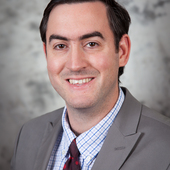
David Wheatley
Assistant Professor in Operations & Decision Sciences, Wilfrid Laurier University
Less ![]()
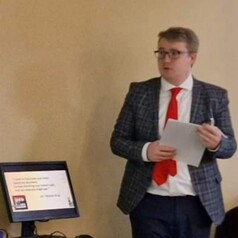
David Wilders
PhD Candidate, School of English, Dublin City University
David Wilders is a PhD candidate, supported by a School of English Research Scholarship, at Dublin City University. His research is focused on representations of disability within Irish literature and primarily in life writing. He is also interested in how disability is portrayed in theatre - musical theatre especially. His work has previously been published on the RTE Brainstorm website.
Less ![]()
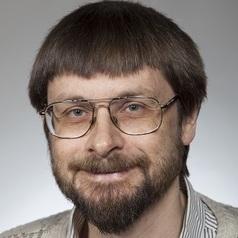
David Wiltshire
Professor of Theoretical Physics, University of Canterbury
David L Wiltshire is a professor of theoretical physics at the University of Canterbury, Christchurch, New Zealand. His research interests are in general relativity, cosmology and quantum gravity.
He began his career working on higher-dimensional gravity, brane worlds and black holes as a PhD student in the Cambridge relativity group in the mid 1980s. He has subsequently explored a large range of ideas on topics including quantum cosmology, gravastars and dark energy. Since the mid 2000s his research has focused on the averaging problem and backreaction in inhomogeneous cosmology. By revisiting the foundational principles of general relativity, he has developed the "timescape cosmology", a phenomenological viable alternative to the standard cosmology, without dark energy.
David is on the editorial board of Classical and Quantum Gravity, an IUPAP representative on the committee of the International Society on General Relativity and Gravitation (ISGRG), President of the New Zealand Institute of Physics, and a member of the Foundational Questions Institute (FQXi). He is also a past President of the Australasian Society for General Relativity and Gravitation.
Less ![]()
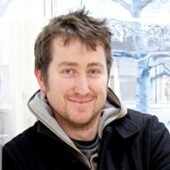
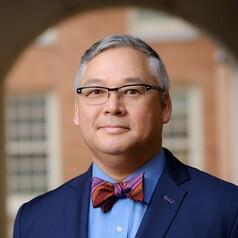
David Yamane
Professor of Sociology, Wake Forest University
David Yamane earned his BA (’91) in sociology from the University of California at Berkeley and his MS (’94) and Ph.D. (’98) in sociology from the University of Wisconsin at Madison. After teaching at the University of Notre Dame and holding a post-doc at the University of Virginia’s Center on Religion and Democracy, he joined the sociology faculty at Wake Forest in 2005. He served as department chair from 2009 to 2011 and is currently an affiliated faculty member in the Department of Religion and School of Divinity.
For the first 20 years of his academic career, Professor Yamane specialized in the sociology of religion, a field in which he authored, co-authored or edited 6 books and 2 major scholarly journals.
Since 2011, Professor Yamane has studied guns, especially the new self-defense-oriented core of American gun culture that Michael Bane calls Gun Culture 2.0. Among his publications in this area is a short history of concealed carry in the US, Concealed Carry Revolution: Liberalizing the Right to Bear Arms in America, and a review essay on “The Sociology of US Gun Culture.”
As he continues to work on a book combining his personal experiences and sociological observations of Gun Culture 2.0, Professor Yamane shares his thoughts on two blogs, gunculture2point0.com and guncurious.com, and on Twitter at @davidyamane and @gunculture2pt0.
In 2022, he launched a YouTube channel, “Light Over Heat with Professor David Yamane,” on which he posts weekly short videos about issues related to his scholarship.
Professional headshots and a full biography are available on Professor Yamane’s personal website davidyamane.com.
Less ![]()
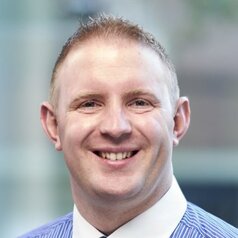
David Yates
Senior Lecturer in Accounting, University of Sheffield
David is a chartered management accountant (CIMA), and holds a PhD and MEd from Aston University. He previously studied at the University of Wales, Aberystwyth where he completed both Bachelor's and Master's degrees in accounting and finance. He joined the University of Sheffield in 2021.
Less ![]()
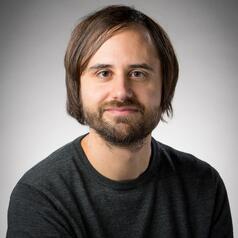
David Young
Research Fellow, Sustainable Housing and Urban Studies Unit, University of Salford
David has been a research fellow at the Sustainable Housing and Urban Studies Unit (SHUSU) since 2021. His research focuses on social security policy and the experience of income change and insecurity.
His doctoral research at the Institute for Policy Research (University of Bath) involved the use of diaries to track the income and expenditures of low-income households. David has recently been a researcher on the Welfare at a Social Distance Project that focuses on social security and employment support during the Covid-19 pandemic and its aftermath. He currently works on the Sanctions, Support and Service Leavers project that has tracked the experiences of military veterans since 2017.
Wider research interests include welfare reform, disability assessments, and the health and wellbeing impacts of advice services. He is a founder member of the Money, Security and Social Policy (MSSP) early career research network and a member of the Social Policy Association.
Less ![]()
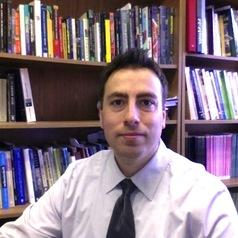
David Zarifa
Canada Research Chair in Life Course Transitions in Northern and Rural Communities; Professor of Sociology, Nipissing University
David Zarifa is Professor and Tier 2 Canada Research Chair in Life Course Transitions in Northern & Rural Communities in the Department of Sociology at Nipissing University and Academic Director of the Nipissing University Research Data Centre.
Less ![]()
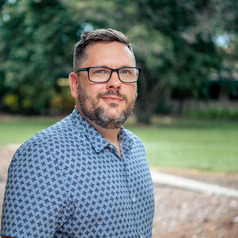
David A Mitchell
Clinical Profess CDU MENZIES School of Medicine and Faculty of Health Science, Charles Darwin University
Prof David Mitchell is a consultant psychiatrist, health leader, academic and community advocate. He has a special interest in Veteran Psychiatry that evolved through his 10 years' experience as a commissioned officer in the RAAF. He He is a Clinical Professor at CDU and an Associate Professor at Flinders University. He is currently the Chief Psychiatrist of the Northern Territory. The Northern Territory is a remote region of Australia with complex health needs, including a large burden of mental illness. It has a substantial first nation population with their own important health concerns. It is also a region with the largest proportion of military personnel. The Chief Psychiatrist is the senior leader for mental health within the NT jurisdiction and is committed to improving the mental health and understandings of mental health for all NT residents.
Less ![]()
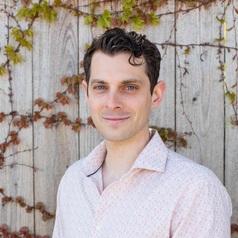
David A. Vivian
Visiting Assistant Professor of French Language and Culture, Soka University of America
I am a scholar of the environmental humanities with a focus on decolonial ecocriticism. I have a wide-ranging interest in narrative and how it shapes the human-environment relation, particularly in the context of counter-discourses to the extractivist and instrumentalist ideologies of colonial capitalism.
Less ![]()
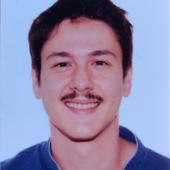
David Abbad Gomez
PhD Candidate, Department of Epidemiology and Evaluation, Hospital del Mar Research Institute, Barcelona
Less ![]()
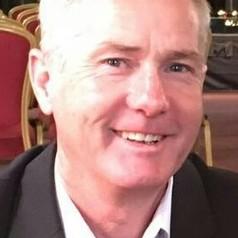
David Alan George
Adjunct Assoc. Professor - Australian Rivers Institute - Earth scientist, Griffith University
Dr David George has developed, delivered and evaluated applied climate courses in the primary industries sector. He established national accreditation of Developing climate risk management strategies into the Australian Qualifications Framework.
Less ![]()
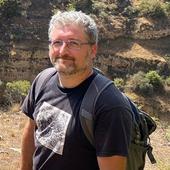
David Álvarez Alonso
Profesor Titular de Prehistoria, Universidad Complutense de Madrid, Universidad Complutense de Madrid
Less ![]()
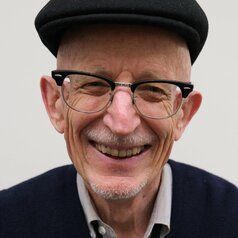
David Angus Ness
Adjunct Professor, UniSA STEM, University of South Australia
Co-organised 1st International 'Sufficiency Summit' held 4 May 2023, moderated Session on urban and human settlements
https://vimeo.com/user/11247580/folder/16482035
Leading research on sufficiency in planning and building at UniSA
Background in architecture, urban and infrastructure planning within SA Government and private practice.
Consultant to UN on sustainable infrastructure, clean environment and green growth.
Chair of 'Ecological Development Union International Inc' (EDUI), which promotes, clean, resource efficient and r/circular economy, with China as main focus.
Awarded Arup Global Research Grant 2017 for research on digitally enabled reuse of building components as a service.
Completed book on "The Impact of Overbuilding on People and the Planet" (Cambridge Scholars, 2019).
Less ![]()
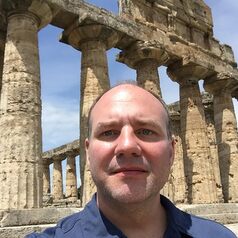
David B. Hollander
Professor of History, Iowa State University
I study the economic history of late Republican and early Imperial Rome. I am the author of Money in the Late Roman Republic (Brill, 2007) and Farmers and Agriculture in the Roman Economy (Routledge, 2018).
Along with Thomas R. Blanton IV and John T. Fitzgerald, I edited The Extramercantile Economies of Greek and Roman Cities: New Perspectives on the Economic History of Classical Antiquity (Routledge, 2019) and, with Timothy Howe, I edited A Companion to Ancient Agriculture (Wiley, 2020). I am also one of the general editors of Wiley's The Encyclopedia of Ancient History for which I’ve written entries on such topics as Roman Republican Coinage, bullion, glue, and insects.
In addition to my appointment in the Department of History, I also serve as Director of the Classical Studies Program.
Less ![]()
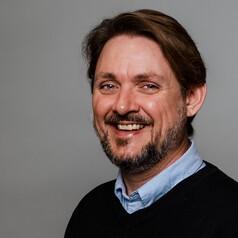
David Bruce Porter
Senior Learning Designer, University of Illinois at Urbana-Champaign
Dr. David Bruce Porter specializes in helping individuals and organizations to leverage digital tools and platforms to achieve their goals. By focusing on people, platforms, and processes, he partners with stakeholders to design effective and eloquent solutions. Over the past 15 years, he has helped clients in higher education design online activities and courses to create engaging and seamless solutions to transform educational practice.
David is currently a Senior Learning Designer at the Gies College of Business at the University of Illinois Urbana-Champaign and a freelance developer and consultant for institutions and individuals seeking to unlock the potential of technology and learning.
Less ![]()
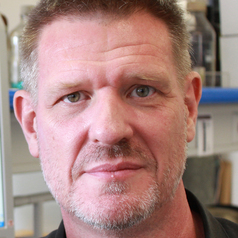
David Bueno i Torrens
Profesor e investigador de la Sección de Genética Biomédica, Evolutiva y del Desarrollo. Director de la Cátedra de Neuroeducación UB-EDU1ST., Universitat de Barcelona
David Bueno (Barcelona, 1965) es doctor en Biología y profesor e investigador en la Sección de Genética Biomédica, Evolutiva y del Desarrollo en la Universidad de Barcelona. Es también l Director de la Cátedra de Nueroeducación UB-EDU1ST. Su trayectoria profesional y académica, centrada en la genética del desarrollo y la neurociencia y su relación con el comportamiento humano, incluidos los procesos de aprendizaje, se ha desarrollado principalmente en Barcelona. Ha sido también investigador en la Universidad de Oxford, y ha realizado estancias en la Universidad de Innsbruck (Austria), el European Molecular Biology Laboratory de Heidelberg (Alemania) i el Cold Spring Harbour Laboratory de Nueva York. Imparte clases de diversas materias del campo de la genética, la divulgación científica y la formación del profesorado, y participa en diversos Másters y Postgrados en Neuroeducación. Ha publicado setenta artículos científicos en revistas especializadas, y es autor de veinticuatro libros de ensayo y divulgación en genética, neurociencia, evolución, comportamiento humano y neuroeducación. Es autor o coautor de una treintena de libros de texto de primaria, secundaria, bachillerato y estudios universitarios, colabora habitualmente en diferentes medios de comunicación, donde ha escrito más de 700 artículos y ha contribuido a diversas obras enciclopédicas. En 2010 ganó el Premio Europeo de Divulgación Científica por su obra "El enigma de la libertad. Una visión biológica y evolutiva de la libertad humana"; en 2018 el Premio Magisterio por su contribución a la neuroeducación; el 2019 la distinción de la Universidad de Barcelona por sus actividades de divulgación; el 2021 el premio ASIRE junto con sus compañeros de la Cátedra de Neuroeducación por las actividades realizadas desde la misma; y el 2022 el premio Joan Lluís Vives a la edición universitaria per su libro "Herédate. Como influyen en nuestro comportamiento los genes y la biología". También ha obtenido en diversas ocasiones el reconocimiento al profesor más bien valorado por sus alumnos del grado de Biotecnología de la Facultad de Biología de la UB. Ha participado y participa en diversos proyectos de reflexión e innovación educativa promovidos por la Generalitat de Catalunya, y colabora con la International Bureau of Education de la UNESCO. Desde hace 14 años es el coordinador de la materia de Biología de las Pruebas de Acceso a la Universidad en Cataluña, donde ha potenciado el cambio de las preguntas memorísticas tradicionales por preguntas de reflexión y análisis en contextos reales.
Less ![]()
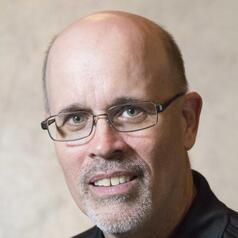
David C. Campbell
Professor Emeritus of Human Ecology, University of California, Davis
David C. Campbell's research Interests include:
• How public policy and community development processes interact at the local level, focusing on governance, civic engagement, and citizenship;
• Community food systems;
• Collaboration in local youth, social service and workforce development networks;
• Evaluation of collaborative community initiatives;
• Faith-based community organizing and initiatives.
He is the author of "Democracy’s Hidden Heroes: Fitting Policy to People and Place" (Temple Press, 2024). This book tells the story of the local public managers and nonprofit directors who work where bureaucratic hierarchies and community networks meet and often collide. These hidden heroes struggle to align universal rules and compliance demands with the unique circumstances facing their organizations and communities.
Less ![]()
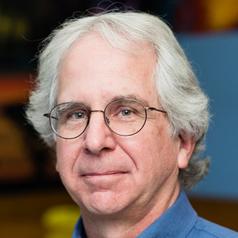
David D. Nolte
Distinguished Professor of Physics and Astronomy, Purdue University
David D. Nolte, the Edward M. Purcell Distinguished Professor of Physics and Astronomy at Purdue University, is an internationally recognized researcher in holography and interferometry. He received his baccalaureate from Cornell University and his PhD from the University of California at Berkeley. He is the author of over 200 journal papers, has written 14 book chapters or encyclopedia articles, has secured 24 US patents in interferometric optics and biophotonics, and is a technical founder of two start-up companies based on biological applications of interferometric detectors.
David has been elected a Fellow of the American Association for the Advancement of Science, a Fellow of the American Physical Society and a Fellow of the Optica Society. He was an Alfred P. Sloan Research Fellow and a Presidential Young Investigator of the National Science Foundation. In 2005 he received the Herbert Newby McCoy Award from Purdue University. He has been interviewed on public radio and TV, as well as by science magazines, on the topics of his scientific research.
His general-interest science book, "Interference: The History of Optical Interferometry and the Scientists who Tamed Light" (Oxford, 2023), tells the stories behind the science of light, while his earlier book, "Mind at Light Speed: A New Kind of Intelligence" (Simon & Schuster: Free Press, 2001), gives a popular account of the fiber optic telecommunication revolution. His book, "Galileo Unbound: A Path Across Life, the Universe and Everything" (Oxford, 2018), is a gentle introduction to the history of dynamics and complex systems.
Less ![]()
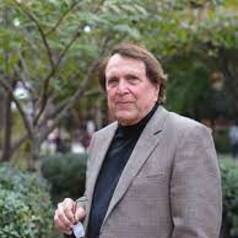
David G. Bromley
Founder/Director World Religions and Spirituality Project, Virginia Commonwealth University
Over the course of my career I have written or edited about twenty books and about two hundred articles, mostly in the area of sociology of religion. Currently, I am Founder/Director of the World Religions and Spirituality Project, a web-based project that hosts profiles, primarily on emerging and alternative social movements. We have about 500,000 visitors annually, most are connected to academic programs. www.wrldrels.org
Less ![]()
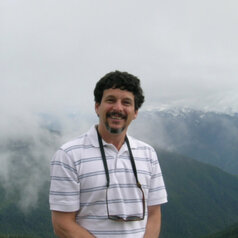
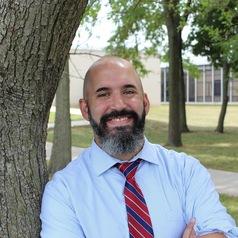
David J. Purpura
Professor of Human Development and Family Science; Director of the Center for Early Learning, Purdue University
I’m a professor of Human Development and Family Science at Purdue University. The focus of my research is on early mathematics and reading development, assessment, and intervention. I am also the Director of the Center for Early Learning which is a research, practice, and policy center.
Less ![]()
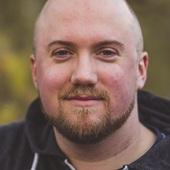
David J. Wilcox
Part-Time Teaching Fellow, Department of Political Science and International Relations, University of Birmingham
Less ![]()
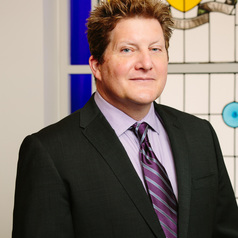
David Jonathan Castle
Chair of Psychiatry, The University of Melbourne
David is Professor of Psychiatry at St Vincent’s Health and The University of Melbourne. He has wide clinical and research interests, encompassing schizophrenia and related disorders, bipolar disorder, cannabis abuse, OCD spectrum disorders and disorders of body image. He has published over 600 papers and chapters; and 22 books. His broader interests include music, literature, theatre and art.
Less ![]()
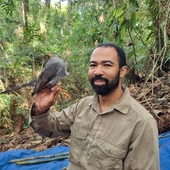
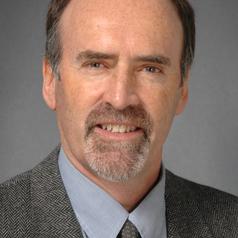
David L Rudolph
Professor of Hydrogeology, Department of Earth & Environmental Sciences, University of Waterloo
I teach and conduct research in the field of regional hydrogeology with an emphasis on large scale groundwater supply systems for human and industrial use.
Less ![]()
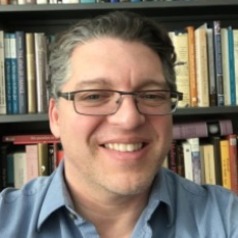
David L. Graizbord
Director of the Arizona Center for Judaic Studies, University of Arizona
Dr. Graizbord is S. D. Curson Professor of Judaic Studies. A historian of early modern Jews, Dr. Graizbord's research focuses on the Western Sephardi Diaspora of the seventeenth century. In particular, Dr. Graizbord's writing approaches questions of religious, social, and political identity as these questions shaped the lives of so-called "New Christians" or "conversos" from the Iberian Peninsula who became Jews in exile. He has also written about Judeophobia and the culture of the Spanish and Portuguese Inquisitions; marginality and dissidence in Jewish and Ibero-Catholic societies of the seventeenth century; ethnicity and religion among Sephardim from medieval times to the 1700s; and converso trading networks in the Atlantic. More recently he has published on Jewish ethnic identity and Zionism among American Jews. His forthcoming book, an anthology, is entitlted _Early Modern Jewish Civilization: Unity and DIversity in a Diasporic Society_ (Routledge).
Less ![]()
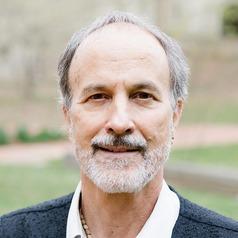
David L. Haberman
Professor Emeritus, Religious Studies, Indiana University
I am interested in a wide range of South Asian religious traditions and concentrate on the medieval and modern movements of northern India. Much of my work has focused on the culture of Braj, an active Krishna pilgrimage site known for its lively temple festivals, performative traditions, and literary creations.
More recently I have shifted my research interests to include the ancient city of Banaras, a pilgrimage center and temple town located on the bank of the Ganges River. My approach combines both textual research and anthropological fieldwork. Acting as a Way of Salvation: A Study of Rāgānugā Bhakti Sādhana (Oxford University Press, 1988) is an investigation of religious reality construction based on a close examination of a meditation technique devised by the theoreticians of Braj. I have published a book on the circular pilgrimage around Braj, entitled Journey Through the Twelve Forests: An Encounter with Krishna (Oxford, 1994). This book contemplates the complexities of circular wanderings and different strategies for dealing with the tumultuous nature of desire as it takes the reader on a spatial and mythological journey.
Less ![]()
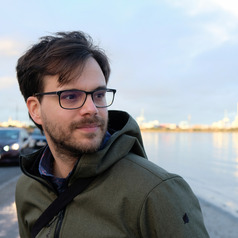
David López Idiáquez
Postdoctoral Research Associate, Behavioural and Evolutionary Ecology, University of Oxford
I am interested in understanding why individuals behave in the way they do and the ultimate fitness consequences and proximate mechanisms of those behaviours. I am keen on exploring the causes that generate individual variation in behavioural traits in the animal kingdom, regardless of the target species. Further, I also have a deep interest in exploring how individuals adapt to the fluctuating environmental conditions and the fitness consequences of the different life-history strategies present under those variable conditions.
After being a PhD student at the National Natural History Museum (MNCN) in Madrid studying kestrel colouration, I moved to Montpellier to continue my research on the evolutionary dynamics of coloration focusing on blue tits and on the Paridae family as a postdoctoral researcher. Currently, I am a PDRA at the Edward Grey Institute (University of Oxford), where I focus on analysing great tit phenological responses to climate change.
Less ![]()
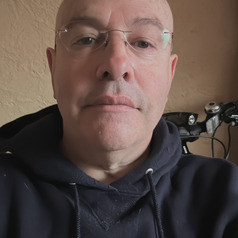
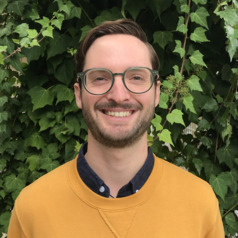
David O. Reynolds
Postdoctoral Fellow, Asia Research Institute, National University of Singapore
Dr Reynolds is a sociologist interested in waste, plastics and food, and in how these are shaped by care and processes of politicisation, particularly in relation to sustainability. His PhD thesis in Human Geography (Monash University, Melbourne) investigated the experiences, practices and perspectives of people who avoid using plastic materials in their households in Australia. His MA in Sociology (Otago University, Aotearoa/New Zealand) investigated expert perceptions of food insecurity in Aotearoa/New Zealand and examined food insecurity in this food-rich country in relation to neoliberalism. He has published peer-reviewed articles and book chapters about contemporary food and waste issues.
His current research at ARI (National University of Singapore) investigates the household consumption and disposal of plastic materials, and the social, historical and digital practices that shape women’s household management of plastic waste in Asia and Australia.
Less ![]()
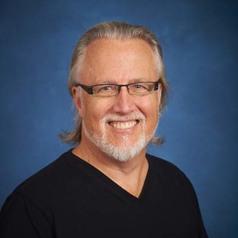
David P. Baker
Professor of Sociology, Education and Demography, Penn State
Dr. David P. Baker is Professor Sociology, Education, and Demography at the Pennsylvania State University, and a Nonresident Fellow, Global Economy and Development, Center for Universal Education, The Brookings Institute, Washington DC. His research focuses on the impact of education on individuals and societies, economies, and science; international comparisons of school organization; academic outcomes, and educational policy. His most recent books are The Schooled Society: The Educational Transformation of Global Culture. Palo Alto CA: Stanford University Press, which won the American Education Research Association- Outstanding Book of the Year, 2015; Global Mega-Science: Universities, Research Collaborations and Knowledge Production. Stanford University Press 2024 (w/ J. Powell).
Less ![]()
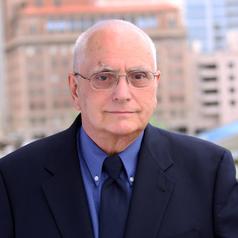
David R. Berman
Professor Emeritus of Political Science, Arizona State University
David Herman is a Professor Emeritus of Political Science, Arizona State University, and a long-time observer of Arizona politics, past and present. Among his several books on the subject is Arizona Politics and Government: The Quest for Autonomy, Democracy, and Development (Lincoln, Nebraska: University of Nebraska Press, second edition, 2024).
Less ![]()
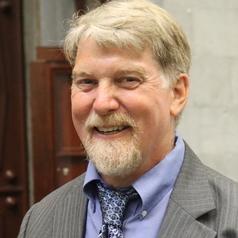
David S Ellsworth
Professor of Plant Eco-physiology, Western Sydney University
Professor David Ellsworth is Professor of Plant Eco-physiology at Western Sydney University. He was educated at Cornell University and the University of Wisconsin, and has held faculty positions at Duke University, the University of Michigan, and Western Sydney University. He leads a cutting-edge team of scientists who seek to understand how plants perform key biotic functions in relation to the environment they live in. He has made distinguished contributions in the areas of tree physiological ecology and effects of rising atmospheric CO2 on plant photosynthesis for over 20 years, and he is the scientific lead for the Eucalyptus free-air CO2 Enrichment experiment ('EucFACE'). Ellsworth has published extensively in the scientific literature about the effects of climate change and high CO2 on forest trees. He has interests in plant responses to climate change including how plants respond to urban stresses such as heat and drought. He has worked on tree photosynthesis for native and planted trees on five continents, though he prefers working on our native Australian flora. David ranks among the most highly-cited scientists in the world in the area of Ecology and the Environment.
Less ![]()
- Market Data























